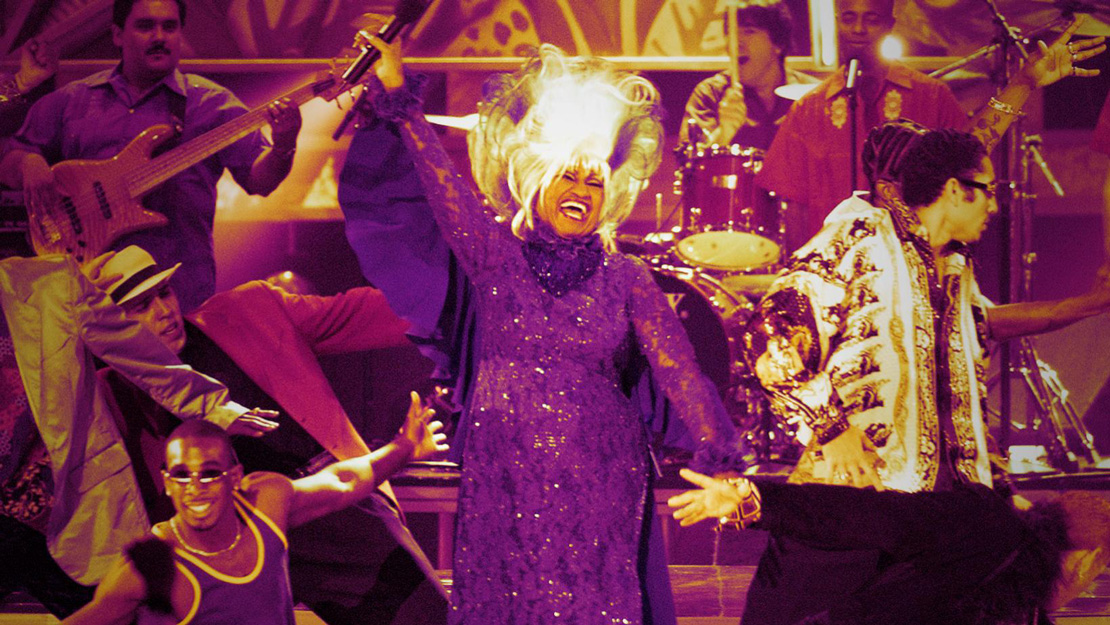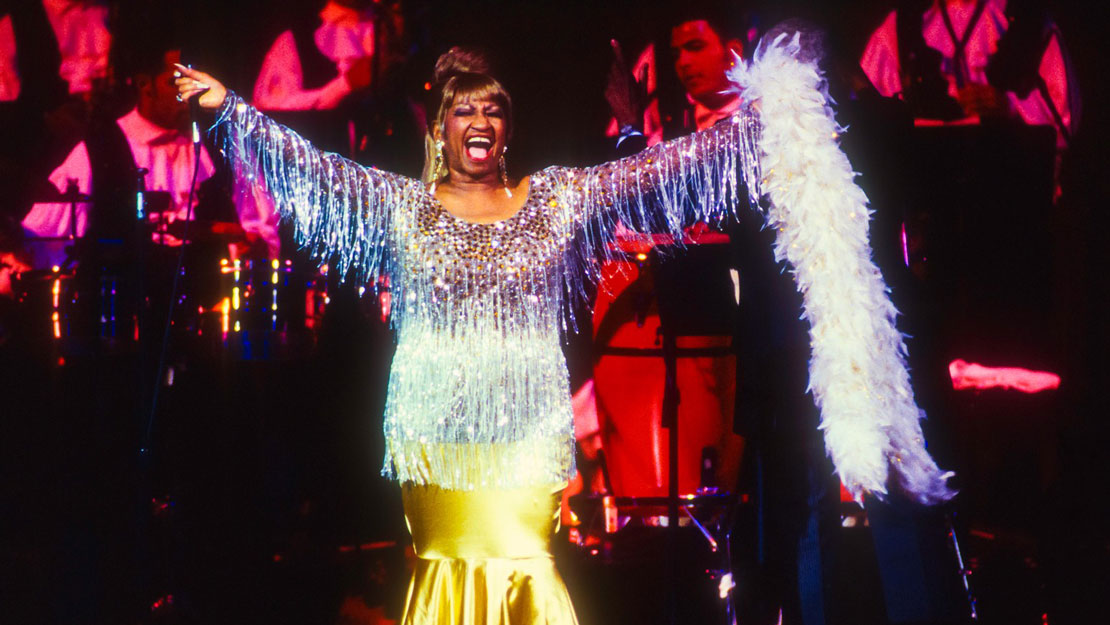By Jennifer Velez / grammy.com – October 9, 2018
Sometimes Latinas are forgotten about when it comes to popular music; we look at the Latina artists who are featured in ‘Women Who Rock,’ a new book that celebrates female artists making contributions to popular culture
Wearing a long blue lace gown with ruffled flounce sleeves, the late salsa music queen Celia Cruz was a powerhouse onstage during the 2002 Latin GRAMMY Awards. With her trademark smile and a towering white and blue wig that was so grand it resembled a headdress, she energetically belted “La Negra Tiene Tumbao,” her 2001 hit song that was nominated for three Latin GRAMMYs that evening, including Record of the Year, Song of the Year, and Music Video of the Year.
This moment is highlighted in Women Who Rock, a new book that pays tribute to women who have defined, continue to define and have made contributions to popular music. The illustrated book is densely rich and written by multiple authors, all of whom are female. It features playlists picked to sonically introduce readers to the artists they read about.
It’s not an easy feat to rundown the history of women in music, however pop music critic and editor Evelyn McDonnell was determined to do just that alongside a roster of diverse women.
“I didn’t want it to just be my taste. Or my opinion,” shared McDonnell. “I wanted to have this pool of experts…and I really sought diversity of expertise among those writers.”
One of those writers, Michelle Threadgould knew “there would be this mad dash [to feature mostly] white rock and roll female musicians.” So she pitched and ultimately penned pieces spotlighting Cruz, Selena Quintanilla, Chilean rapper Ana Tijoux, Los Angeles punk rocker Alice Bag and other Latina artists featured in the book.
“I pitched…artists that I really wanted in the book and that I did not think the majority would pitch,” she shared. “I have an essay in there that’s about Alice Bag. Alice Bag has definitely not had pages dedicated to her in a book like this,” Threadgould said.
Representation of Latin Women in Music
“I feel like [Latinas tend] to get left out of a lot of discourses,” McDonnell said. “Beginning with Celia Cruz, who’s someone I think is so amazing and sometimes not acknowledged enough outside the Latino community.”
“There’s so many interesting things about Celia,” Threadgould said. “I think the hardest thing is things that you leave out.”
Threadgould begins Cruz’s chapter with her 2002 Latin GRAMMY performance and goes into the Afro-Latina’s musical style describing “her call-and-response improvisations.” She also explores on her exile from Cuba, which played a crucial role in her professional and personal life.
The book also tells the story of Selena Quintanilla, the popular cumbia and Tex-Mex singer who was tragically killed in 1995 at the age of 23. In the past two decades the singer, who made history when she won Best Mexican-American Album at the 1994 36th GRAMMY Awards, has transcended the Latino community, garnering nods from the likes of rapper Drake and pop group Haim.
Although a film adaptation of Selena’s life was released in 1997, starring a then relatively unknown Jennifer Lopez, was met with critical acclaim, Threadgould digs deeper into her life before and after her death. “I was also really tired of her being portrayed as this good daughter that [re-affirmed] patriarchal machismo values that were bullsh**, because that really wasn’t her life,” she said. “That absolutely was not. I guess it was sort of like a reframing of Selena that was important to me.”
Why This Narrative Is Important To All Women
It was Selena’s ability to defy her obstacles as a woman, and the resilience of all the other artists in the book that overcame their own boundaries that at the end of the day, both McDonnell and Threadgoud, hope women can draw from the book and use as encouragement in their own lives.
“It’s a really tough time right now, because I think that everything that’s in the news is triggering for so many women, right. It’s hard. It’s really hard,” McDonnell said. “I’m going through that emotionally, myself. I hope that this book can be a point of inspiration.”
Threadgould added: “What I think is really important is this whole idea of owning your rage, owning your ugliness, owning these aspects of yourself that aren’t accepted by the patriarchy and claiming them and researching them, and not being afraid of them,” she said. “Every single person that I dig was like a rebel in her own way. That’s what I really hope women are inspired to be is like to be their own rebel.”
Women Who Rock is available now.




